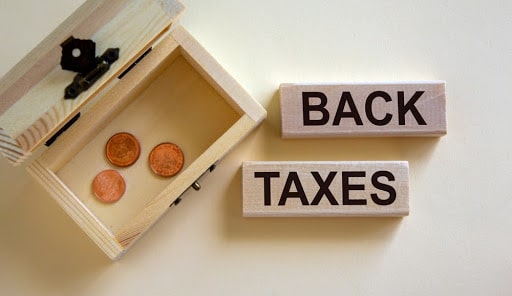As you come to grips with your current financial situation, you may be wondering if there are other ways to get out from under your current tax debt. You do your research and discover that filing for bankruptcy can potentially provide you with the kind of tax relief you need.
But will it work for you? The answer — maybe. The IRS requires that you clear five hurdles in order to discharge back taxes in bankruptcy. If you fail to meet these five requirements, back taxes and the liens associated with them can survive bankruptcy and leave you at square one.
Only Income Taxes
Only your income taxes are eligible for discharge. Items such as payroll taxes, fraud penalties, trust fund taxes, and recent property taxes are considered non-dischargeable taxes and cannot be eliminated through bankruptcy.
They Are At Least Three Years Old
Essentially, this rule is in place to prevent a person from trying to file for bankruptcy every time they have a massive debt coming due. The IRS will discharge back taxes that are at least three years old or older because you have an established history with that debt, and they can see you aren’t just trying to pull a fast one.
Zero Attempts at Fraud or Evasion
This condition is one of the most important. In order to have tax debt discharged as part of bankruptcy, you will need to demonstrate that you DID NOT willfully attempt to sidestep paying the debt or fraudulently try to pay it off. You want to show the courts that everything you have done up until this point has been above board and that you have not tried to hide any assets that could have helped you pay off the current debt.
Filed Tax Returns
To get a particular tax year discharged and off your plate, you need to have filed a tax return for that debt within two years of your filing for bankruptcy. If you have not filed a return during that time frame, you cannot get the debt discharged.
Pass or Fail of the “240 Day” Rule
The 240 Day rule applies to any income tax debt that is under consideration for discharge. The debt in question needs to have been assessed by the IRS at least 240 days before the bankruptcy filing. Additionally, the debt can also have not been assessed at all and still qualify.
If you are considering filing for Bankruptcy to solve your back tax debt, you need to consult with an experienced tax professional to ensure that you’re prepared for the fight ahead.
Are you grappling with back taxes and in need of tax relief services in Salt Lake City? The tax attorneys at McClure & Stewart can help determine if filing bankruptcy is right for your situation and get you out from underneath your back tax debt. Contact our team to learn more and schedule a consultation.

